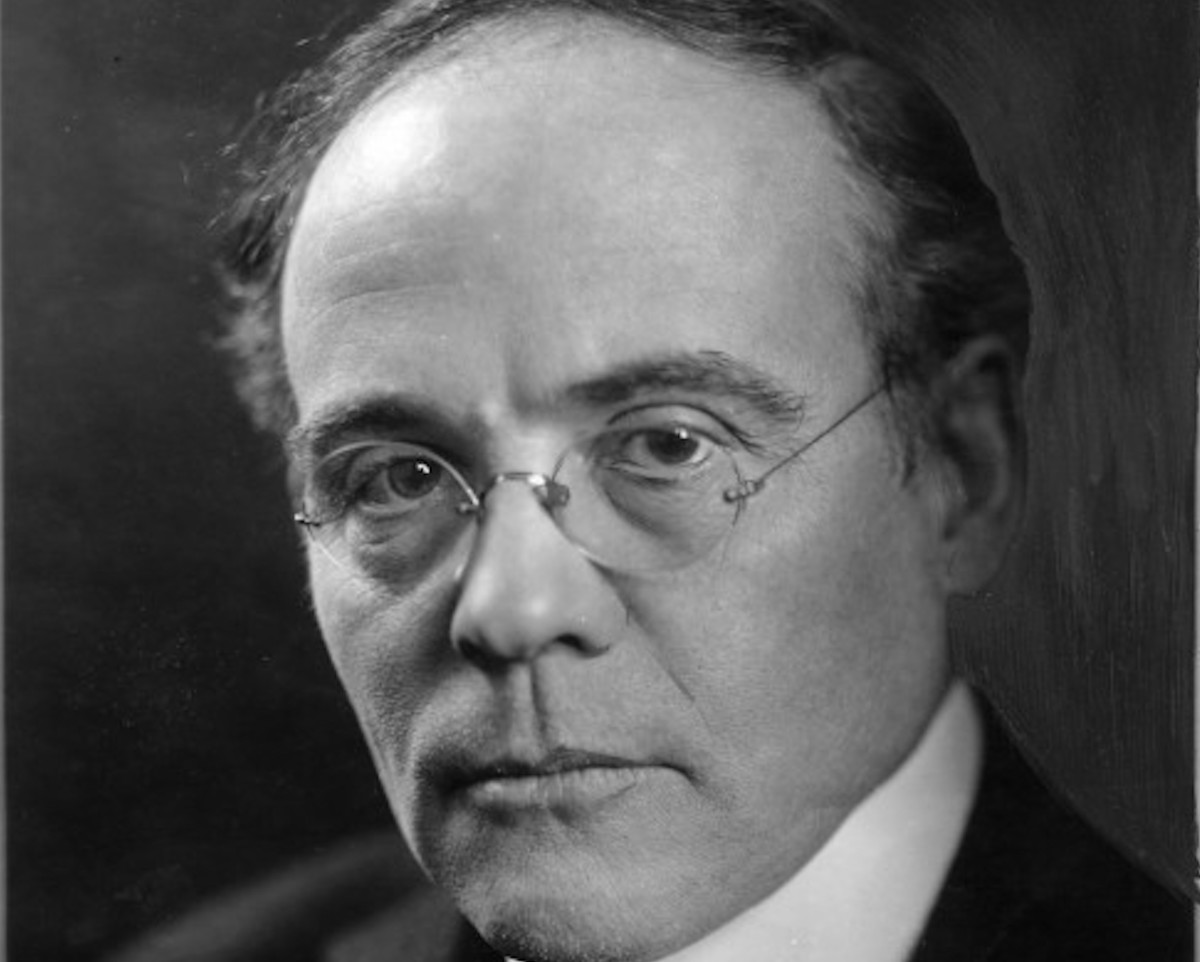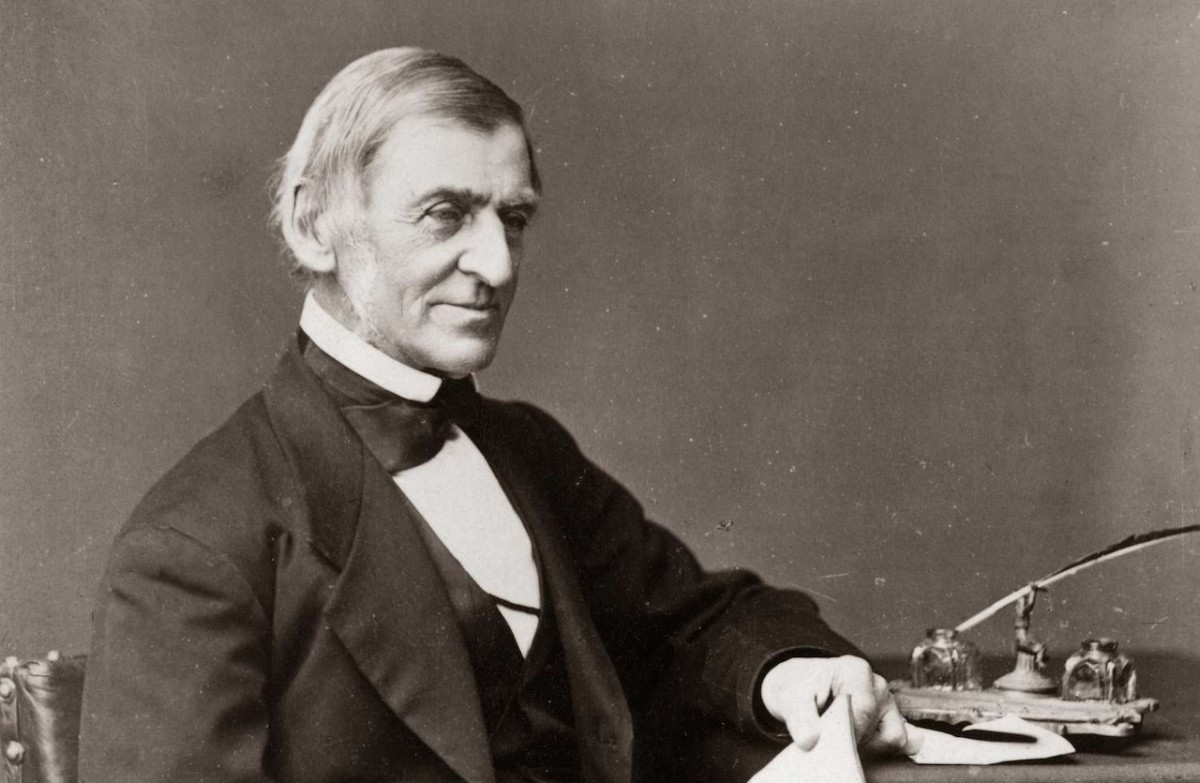Edgar Lee Masters’ "Aner Clute"

Introduction and Text of "Aner Clute"
In Edgar Lee Masters’ "Aner Clute," from Spoon River Anthology, the speaker is a prostitute, who blames others for her own life choices, as many of the Spoon River soliloquists are wont to do.
The bulk of Aner Clute's drama plays out in her comparison of her choosing "the life" to a boy stealing an apple from a grocery store. Like many other Spoon River speakers, Miss Clute dabbles in a ridiculous fantasy designed solely to relieve her of her own guilty life choices.
Aner Clute
Over and over they used to ask me,
While buying the wine or the beer,
In Peoria first, and later in Chicago,
Denver, Frisco, New York, wherever I lived,
How I happened to lead the life,
And what was the start of it.
Well, I told them a silk dress,
And a promise of marriage from a rich man—
(It was Lucius Atherton).
But that was not really it at all.
Suppose a boy steals an apple
From the tray at the grocery store,
And they all begin to call him a thief,
The editor, minister, judge, and all the people—
"A thief," "a thief," "a thief," wherever he goes.
And he can’t get work, and he can’t get bread
Without stealing it, why the boy will steal.
It’s the way the people regard the theft of the apple
That makes the boy what he is.
Commentary on "Aner Clute"
Edgar Lee Masters’ speaker in "Aner Clute" compares her choosing "the life" to a boy stealing an apple from a grocery store.
First Movement: Getting into "The Life"
Over and over they used to ask me,
While buying the wine or the beer,
In Peoria first, and later in Chicago,
Denver, Frisco, New York, wherever I lived,
How I happened to lead the life,
And what was the start of it.
Aner begins her drama by reporting that her johns (customers of a prostitute) would ask her how she got into "the life," which is a euphemism for prostitution. They supposedly wanted to know "what was the start of it."
These johns in Peoria, Chicago, Denver, San Francisco, New York, or "wherever [she] lived" would put these questions to her as they were "buying the w*ne or the b*er."
No doubt, they asked not so much because they cared how she became a "working girl," but likely just to have something to say. They probably had little else in common with their companion for the night, and such a question would seem personal enough yet non-intimidating.
Second Movement: Blame It on a Dress and a Promise
Well, I told them a silk dress,
And a promise of marriage from a rich man—
(It was Lucius Atherton).
Aner claims she would tell them she got into the business because of "a silk dress, / And a promise of marriage from a rich man." She even names the man, Lucius Atherton.
Third Movement: A Lie and Ludicrous Comparison
But that was not really it at all.
Suppose a boy steals an apple
From the tray at the grocery store,
And they all begin to call him a thief,
The editor, minister, judge, and all the people—
Aner then admits that her claim about the marriage promise and the silk dress was a lie, and she begins a ludicrous comparison of her choice to sell sex for a living to a boy stealing an apple from a grocery store. Clute's pitiful plaint is that "the editor, minister, judge, and all the people" took up the refrain of calling the boy "a thief."
Fourth Movement: The Label Makes the Man
"A thief," "a thief," "a thief," wherever he goes.
And he can’t get work, and he can’t get bread
Without stealing it, why the boy will steal.
It’s the way the people regard the theft of the apple
That makes the boy what he is.
Clute continues her analogy and chorus of "all the people" calling the boy, "A thief," "a thief," "a thief." Everywhere the poor lad goes someone calls him a thief. The boy's reputation as a thief prevents the boy from finding any job. He cannot even supply his own meals, so the boy can do only one thing—continue to steal.
According to Aner, the boy’s predicament was not engendered by the boy stealing an apple; his life as a theft resulted from "the way the people regard the theft of the apple." Their heartless taunting "ma[de] the boy what he is." Aner’s analogy to the boy-turned-thief sounds utterly asinine.
She is implying that because she took money once for sex, she had to continue because everywhere she went, people would call her names like whore, slut, slattern or whatever.
So Aner's difficulty was not her own making. Her downfall was having other people label her a whore that made her actually become a prostitute. Such is the convoluted thinking of many of these Spoon River cemetery inmates. They are never to blame for their choices—they blame society in the town of Spoon River.

Related Edgar Lee Masters Information
- Life Sketch of Edgar Lee Masters - Edgar Lee Masters’ American classic Spoon River Anthology brought the poet into the literary spotlight, and no other work from his extensive writings has attracted more attention, including his sequel to Spoon River The New Spoon River.
Commentaries on Edgar Lee Masters Poems
- Edgar Lee Masters’ "The Hill" The poem "The Hill" opens Edgar Lee Masters’ American classic Spoon River Anthology, which is told in a series of dramatic epitaphs by the deceased residents of Spoon River, an imaginary town in Illinois. The work might be considered a character study in poetry.
- Edgar Lee Masters’ "Hod Putt" Hod Putt considered himself a loser in life, but he envied those who were successful.
- Edgar Lee Masters’ "Fiddler Jones" and "Barney Hainsfeather" Fiddler Jones is one of the less melancholy figures of Spoon River, though he has his trials as well. Barney Hainsfeather's epitaph reveals a unique complaint of a man who laments being buried in the wrong cemetery.
- Edgar Lee Masters’ "Robert Fulton Tanner" Fulton is a pathetic character, who discovers that literally building a better mouse trap might only provide a cliché to fling at this thing vaguely called "Life."
The "Minerva Jones" Sequence
1. "Minerva Jones" The "Minerva Jones" epitaph features one of the most depraved characters of the Spoon River talking dead. She is self-absorbed and haughty, lacking empathy and self-awareness, causing her to remain ignorant of her own discordant thoughts.
2. "'Indignation' Jones" In the second epitaph of the "Minerva" series, the poetess’ father, "Indignation" Jones, fulminates against Spoon River society.
3. "Doctor Meyers" The third epitaph in the Minerva Jones series features "Doctor Meyers," who performed the abortion that led to the death of the unfortunate poetess.
4. "Mrs. Meyers" In the fourth epitaph in this series,"Mrs. Meyers," Dr. Meyers' wife testifies that her husband, whom she calls "poor soul," reaped what he sowed for his actions in life. The religious woman offers advice for a pleasant and peaceful life, reminding humanity to "Love God and keep his commandments."
5. "'Butch' Weldy" The fifth and final epitaph "'Butch' Weldy" concludes the "Minerva" series. Butch declaims about his ordeal after a work related accident—with nary a nod to Minerva.
The Pantier Sequence
1. "Benjamin Pantier" and "Mrs. Benjamin Pantier" Unbridled arrogance, overweening vanity along with cowardly weakness have combined to bring about the destruction of the marriage of Mr. and Mrs. Benjamin Pantier. The husband appears to be weakling allowing himself to be cowed by his wife, an arrogant bully.
2. "Reuben Pantier" Reuben Pantier's colorful character helps dramatize the power of spiritual love for healing the mind, heart, and soul, even through the distance of miles and decades. Reuben is the son of the dysfunctional couple Mr. and Mrs. Benjamin Pantier.
3. "Emily Sparks" The epitaph "Emily Sparks" in Edgar Lee Masters’ American classic Spoon River Anthology is the fourth entry in the sequence of five epitaphs featuring a dysfunctional couple, their son, and the latter’s influential mentor.
4. "Trainor, the Druggist" Edgar Lee Masters’ "Trainor, the Druggist" from the American classic Spoon River Anthology offers a final installment covering the pitiful story of the Pantiers: Mr. and Mrs. Benjamin Pantier and their son Reu
This content is accurate and true to the best of the author’s knowledge and is not meant to substitute for formal and individualized advice from a qualified professional.
© 2025 Linda Sue Grimes






